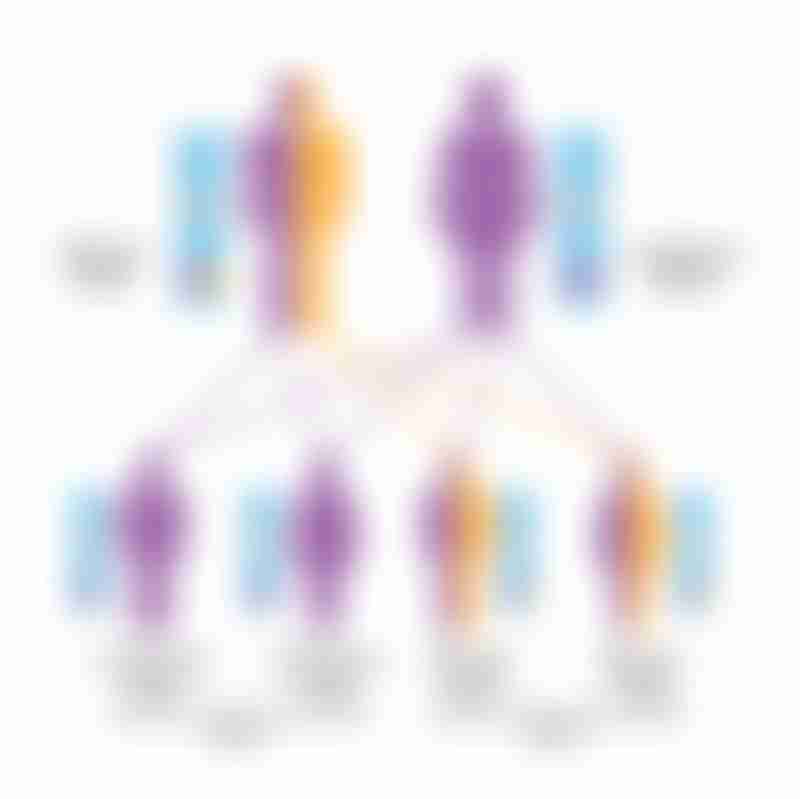The Causes of Breast Cancer: What You Should Know

Source: Shutterstock
Breast cancer is a complex disease and identifying its exact cause can be difficult, if not impossible. While several risk factors have been associated with breast cancer, it's challenging to pinpoint the precise factors that contribute to each individual case. However, it's known that changes or mutations in genes within cells can lead to breast cancer. Understanding whether you have specific mutations can significantly affect your chances of developing and surviving breast cancer.
What is a gene?
To begin, it is important to understand what a gene is. Genes are segments of DNA (deoxyribonucleic acid) that are housed in all of the cells in our body. They store information and determine how cells function.

Source: Shutterstock
Consider this analogy: cells are the workers, each with their own specific job. To perform their duties, they refer to genes, which act like instruction manuals. Different genes provide different instructions depending on the cell's function and needs. As needed, some genes are turned on while others are turned off, allowing the cell to survive and perform its job effectively. But how do mutated genes contribute to the development of cancer?
The genes related to cancer can be classified into two main types:
- Tumor suppressor genes
Tumor suppressor genes play a crucial role in instructing your cells to repair damaged DNA, halt replication, or initiate self-destruction. However, if these genes become mutated and are turned off when they should be on, it can lead to the development of cancer.
- Proto-oncogenes
Proto-oncogenes play a crucial role in the regulation of cell growth and replication, which is necessary for the production of new cells in the body. However, when these genes undergo enough mutations, they can become activated when they should be inactive. Proto-oncogenes that are activated when they should not be are then called oncogenes, and may lead to the development of cancer.
Why do genes mutate?
Have you ever wondered why genes mutate? Well, there are usually several reasons why this happens. Here are some of the most common ones:
- Random errors that occur during cell division
Sometimes when cells divide and multiply, there is a possibility of unforeseen and random errors occurring, which may result in alterations to the cell’s genes.
- Harmful substances and triggers can damage DNA
Exposure to substances in our external environment, such as UV radiation, chemicals, and viruses, can have harmful effects on our DNA. These substances can cause damage and mutations to our DNA strands.
- Mutated genes inherited from parents
It can be difficult for parents to learn that their genetic mutations may be passed down to their children. It is important to remember though, that mutations that develop during cancer development cannot be inherited and are only present in cancer cells. Fortunately, mutated genes inherited from parents are the cause for breast cancer only 5-10% of the time.
“I have a gene mutation. Does that mean I will get cancer?”
Well, not necessarily. It is important to note that gene mutation is a natural occurrence and it can happen at any point in our lives. While most mutations are harmless and may go unnoticed, an accumulation of mutations in various genes that control cell growth can lead to the development of cancer over time. The Cancer Genome Project has found that most cancer cells have 60 or more mutations. This may bring hope as it means that a single mutation in a gene is highly unlikely to cause cancer.
What does this mean for you?
If you have family members with known genetic mutations, you might want to consider predictive genetic testing. Breast cancer is closely associated with certain mutations, such as those in the BRCA1 and BRCA2 tumor suppressor genes, which can increase the risk of developing the disease.
It has been found that a significant number of women, ranging from 55% to 72%, who carry a harmful BRCA1 variant are likely to develop breast cancer by the age of 70-80 years old. This is in contrast to the general western population where only 13% of women develop breast cancer at some point in their lives. It is important to know that the chances of carrying a harmful BRCA gene variant increase if one of your parents has it. Male parents may also be carriers of the mutant BRCA gene and pass on the mutation even if their female partners are not carriers.

Source: Shutterstock
That is why it is crucial to consider the possibility of carrying the mutation if there is a history of the gene variant. Taking care of yourself and your loved ones means staying informed about your family’s health history. Being proactive about your health is a compassionate act towards yourself and those you care about.
Individuals with such mutations can take proactive measures to reduce their risk. Early screenings and lifestyle changes can help detect the cancer in its earliest stages, improving treatment outcomes. Consider undergoing genetic counseling to better understand your risk factors. This information can help you take the necessary precautions to protect your health and give you peace of mind.